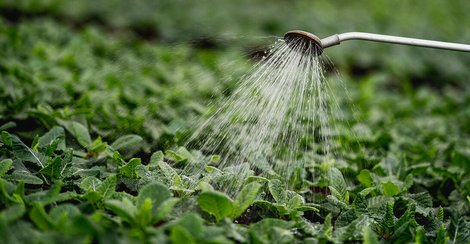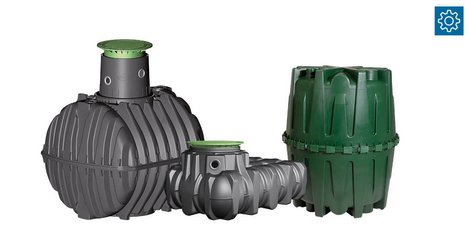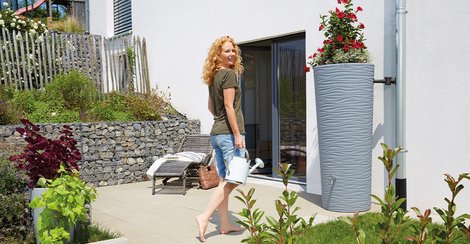10 good reasons why you should use rainwater
Watering the garden is just one good reason why we should collect and reuse our rainwater. And it's not just to do with sustainability and helping to protect the environment. Rainwater harvesting simply makes sense in many ways. Below are the 20 most important advantages:
1. reduce drinking water consumption and save money
Did you know? If you use rainwater for flushing the toilet, for the washing machine or for watering the garden instead of using expensive treated drinking water, you can save up to 50 percent of your drinking water requirements! This has a significant impact on the water supplier's bill.
2. save on rainwater charges
Rainwater can be expensive - after all, local authorities charge rainwater fees for every square meter of land from which rainwater is drained into the sewer system. In Berlin, for example, a mere 150 square meters costs a whopping 276 euros a year. However, owners who collect their rainwater and demonstrably retain it on their property can apply for an exemption or reduction in the fee. If the overflow from rainwater harvesting flows into an infiltration system, no charges are due at all for the connected areas. It is therefore worth contacting the local authority to save costs here too.
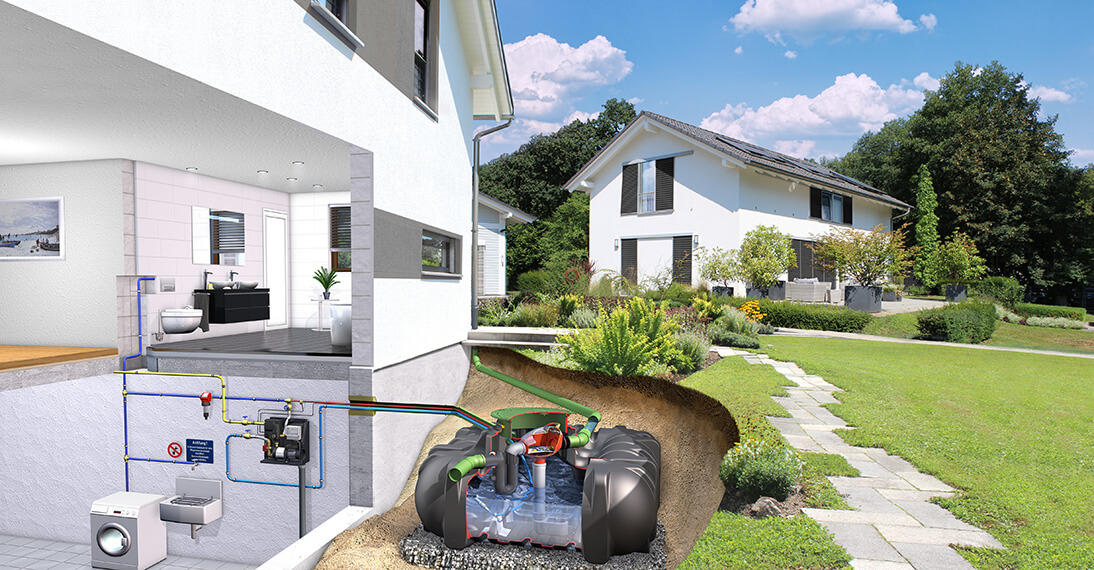
3. protect laundry
Not only plants, but also your favorite sweaters enjoy soft water. In addition, using rainwater in the washing machine means that less detergent is needed, and fabric softener and descaler can also be dispensed with. Ultimately, this also benefits nature. Some washing machine manufacturers even recommend the use of rainwater for the best washing results. And from a hygiene point of view, the use of rainwater is completely harmless.
4. longer life for household appliances
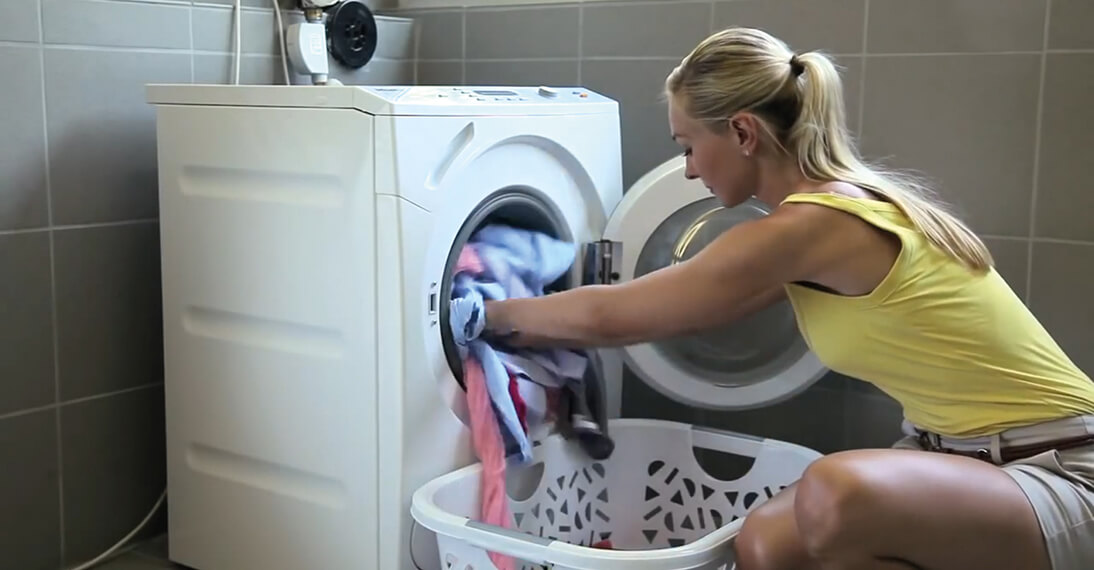
And of course this also has an effect on the washing machines themselves. Those that are operated with rainwater have a significantly longer service life. After all, the soft water also prevents the heating elements from calcifying. This not only saves on electrical waste, but also conserves the resources needed to manufacture technical appliances. The same applies to irrigation systems with lawn sprinklers and drip irrigation. Here too, limescale-free water ensures that the products function reliably over the long term.
5. security of supply
A large proportion of drinking water in Germany is obtained from groundwater. However, in view of climate change and during longer periods of drought, supplies are sometimes in serious decline, especially in urban areas. These heatwaves will occur more and more frequently. As a result, local authorities may restrict water use and prohibit watering gardens or filling pools with drinking water in the event of regional supply bottlenecks. Having your own rainwater supply is a great advantage.
6. Preserving the natural water cycle
In any case, rain that falls on sealed surfaces such as roofs or driveways too often ends up in the sewage system. If you store rainwater on site instead and use it to water your garden, for example, you are doing something good for the environment - after all, the water can seep into your own garden and replenish the groundwater reserves where you live. This preserves the natural water cycle, almost as if the area had not been built on at all.
7. contribution to flood protection
Heavy rainfall is a real challenge for local sewer systems, which are repeatedly pushed to their limits. Local flooding is the result. Every Rain barrel and rainwater harvesting system that retains precipitation on your property helps relieve strain on local sewer systems and prevents property damage.
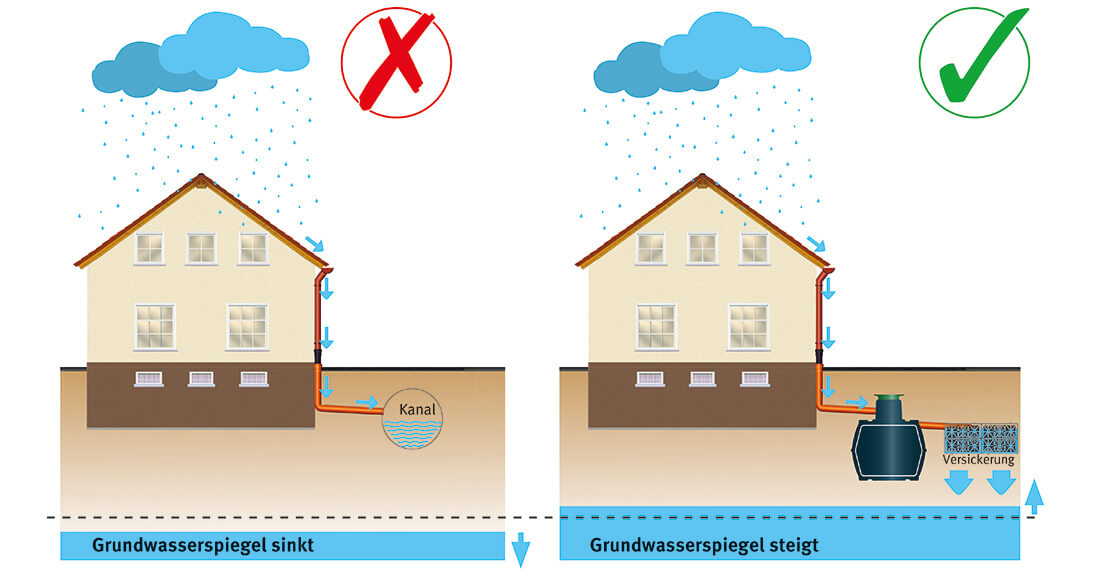
8. plants love rainwater
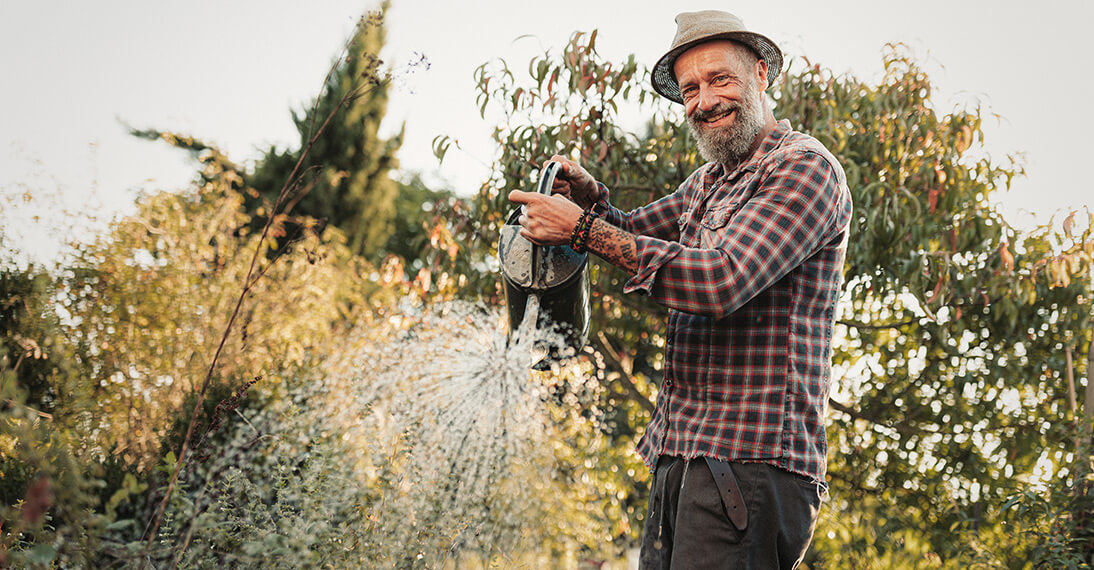
In many regions of Germany, drinking water from the tap is rather hard - too hard! Many plants don't like it at all. In addition, watering with calcareous water can lead to "calcification" of the soil: The pH value increases and the plant's nutrient uptake is impaired. Rainwater, on the other hand, is lime-free, i.e. soft, and is ideal for native greenery and organic vegetables.
9. more fun and biodiversity in the garden
Pools are becoming increasingly popular in the hot months - they can be easily filled with professionally collected rainwater without wasting precious drinking water. The use of rainwater is also ideal for water features, fountains or the installation and filling of ponds. They add variety to the garden and provide a home for many animals and plants. Active mini-ecosystems, so to speak.
10. reduction of infrastructure costs
Sewer systems and sewage treatment plants are large in order to be able to cope with occasional peak loads during heavy rainfall - this is expensive (in terms of taxes). Those who make consistent use of rainfall, on the other hand, help to reduce peak loads and thus reduce infrastructure costs in the long term. That benefits us all in the end.
Conclusion
Rainwater harvesting has many advantages and is actually always worthwhile. Whether it's installing a rain barrel for watering plants or installing a cistern with a connection to the washing machine and toilet flush. Depending on your needs and personal requirements, rainwater harvesting can be adapted to your individual needs.


